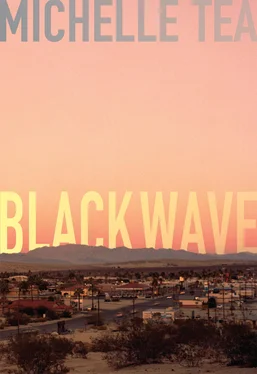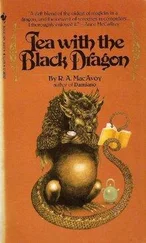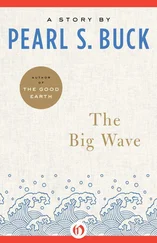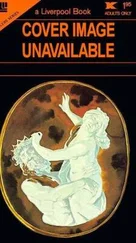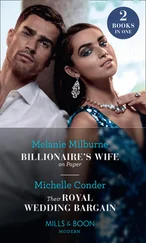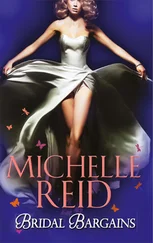Michelle knew people in Los Angeles. Her friend Fabian had been evicted, moved south, and was now hooked up with some movie company. He had phoned Michelle and asked for a copy of her book. Michelle had sent it along without excitement. Such things happened to books, possibility eddied around them. Michelle knew a couple writers whose books had been optioned for film, but no one whose books had been made into a film. Michelle and her ilk were not the writers whose books became movies. They were the writers who scarcely believed they’d managed to be published at all, who not very long ago were publishing themselves on Xerox machines with stolen Kinko’s cards. They were writers who invaded bookstores to truffle out the shop’s sole copy of their book, then scrawl their autograph on the flyleaf with bleeding Sharpies. They did this not so that a reader could have the delight of an autographed book — no one could be sure such readers existed. They did it to damage the book with their signature and render it nonreturnable. Bookstores can return books that don’t sell, but not if someone draws on its pages, even the author.
Though having your book made into a film was too much to hope for, Michelle and her writer friends did yearn for a fruitless but profitable option. Sometimes a movie company bought up the film rights to bunches of books, stories they’d never in a million years make into movies, just so that some other movie company didn’t get it. The studios optioned the work and let it sit on a shelf and the author collected a check and nothing more ever happened. It sounded like a good deal to Michelle. The movie company would only ruin the book anyway.
Michelle and her kin spoke proudly about how they would never let Hollywood turn their stories into watered-down, homophobic films, the musicians among them chiming in that they would never sign to a major label, never sell out. To feel the heat in these conversations one would imagine mainstream success was beating down their doors, that Starbucks wanted to sponsor their next tour, that Julia Roberts was itching to play the part of a fucked-up alcoholic baby dyke in her next film. In actuality, no one cared what these queer, low-rent San Franciscan artists were doing. No one was paying attention and that was fine. These artists didn’t really fucking care about anyone outside their world, either. They wanted only to continue and survive. Michelle dreamed of a corporation paying her a thousand dollars to ensure her book was never made into a movie. A thousand dollars! Michelle had never been in possession of a thousand dollars.
Fabian emailed her when Michelle’s book arrived in the mail. Thanks, he typed. If you ever write a screenplay let me know . Michelle felt the dread of expectation hit her shoulders. Is that what she would have to do? She’d pulled herself from poetry to memoir in order to have more access to the world around her, would she now have to write movies? It was a terrible thought, like needing a job. Michelle already had a job, the bookstore. Writing was the antijob, the fuck you to all jobs, her claim on her autonomy, what kept her feral and free. To hitch her liberty to a screenplay would be to kill it. She’d become an adult, a worker, a grown-up, no longer a writer, not really.
Screenplays followed prescribed arcs, adhered to formulas that forbid departure on the Tangent of No Return. Tangents were Michelle’s favorite part of writing, each one a declaration of agency: I know I was going over there but now I’m going over here, don’t be so uptight about it, just come along. A tangent was a fuckup, a teenage runaway. It was a road trip with a full tank of gas. You can’t get lost if you don’t have anywhere to be. This was writing for Michelle: rule free, glorious, sprawling. Screenplays were the death of this, and on the offhand suggestion of an acquaintance she now felt a deep pressure to write one. Because she was poor. It wasn’t her fault, she was born into it and it is famously hard to climb out of. But if there was an avenue available to her, even a crapshoot like writing a screenplay, and she didn’t take it and she remained poor for the rest of her life, well then it would be no one’s fault but her own.
Also in Los Angeles was Michelle’s gay brother, Kyle. Like everyone, Michelle had a family, though she didn’t talk about them much. She had written a little bit about them, and the people around her had read what was written and then this weird thing happened. Michelle would be talking about her family and someone would pipe up, Yeah, I read that in your book. And Michelle would get such a tripped-out, postmodern feeling about it. She thought it poor form for the listener to morph from a person or friend into a reader, a voyeur. It made Michelle feel caught, like she’d done something wrong. Perhaps she had, perhaps it was too much to have written the book. Her mothers certainly thought so. Kym had written a full critique of the book and emailed it to Michelle as an attachment, in it her own linguistic prowess was displayed. She used words Michelle did not understand in order to eviscerate the prose, indeed eviscerate was one of the words, it was how Michelle learned it. Kym was the only one of their clan to have gone to college and thus occasionally felt like an intellectually superior underdog. Michelle didn’t understand why, if her mother was so learned, she hadn’t lifted her family out of poverty — wasn’t that the whole point of higher education?
Kym’s just jealous, she always thought she’d write a book of her own, Wendy had soothed Michelle, but Wendy refused to read the book at all. Instead, she would pull it off Kym’s bookshelf, scan a few passages about herself, burst into tears, and phone Kyle to process.
She makes me look so ugly, she’d said to her son. Always smoking. But her mother was always smoking. Michelle felt that if people didn’t like the way they looked in her book then they should have behaved differently. Michelle never tried to make herself look awesome, Michelle strove to portray herself as the fickle, self-righteous martyr she was. If her mother thought chain-smoking was ugly behavior for a lady, she should quit. Michelle didn’t feel great about this hardness but she could see no other way.
I thought she made you look noble, Kyle had comforted his parent. Like a hard worker, a really good worker.
Wendy was a nurse at a state hospital for the insane. This had really compromised Michelle’s adolescent fantasy of being locked up in a sanitarium. Hers would not be the manicured lawns and curving mahogany staircases traversed by wealthy friends sent to McLean in Belmont, the prestigious asylum of Anne Sexton and Girl, Interrupted . No, if Michelle lost her mind it would be off to a state loony bin, horrible places run by hardened New Englanders who looked down on the mentally weak. Get it together, she imagined a caretaker hissing, slamming Michelle’s meds down on her tray. New Englanders were more bitter and resentful than people of other regions. They couldn’t fake it like a Southerner, couldn’t make it passive-aggressive like a Californian.
What the fuck are you? local strangers routinely demanded from teenage Michelle, on buses and trains, in stores and in the street. Her beauty ideal then was hair erupting in a mushroom cloud around her head, bangs obscuring her face like a veil, lips blackened with the gummy Elvira-brand lipstick drugstores sold at Halloween.
You think that looks good? people she’d never met would challenge her. After a while Michelle began to think every cackle in a public place was aimed at her. If a stranger approached with an Excuse me, Michelle responded like she was ready to beat them with sticks. This was PTSD. Michelle was so damaged from it that when she finally arrived in the safety of San Francisco and a kindly ex-hippie looked at her hot-pink ponytail and chirped Nice hair! Michelle turned on the woman with a growling Fuck You! People had said Nice hair! to Michelle all the time in Massachusetts and never, not once, had anyone actually thought her hair was nice.
Читать дальше
